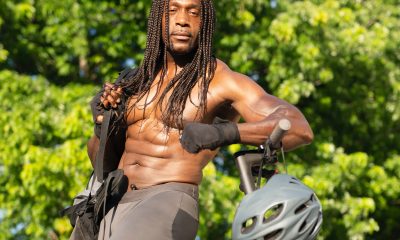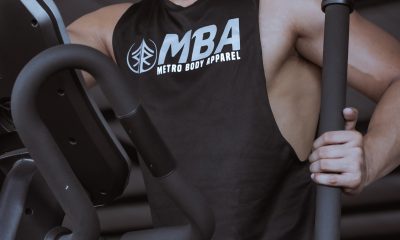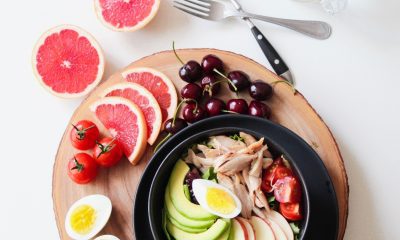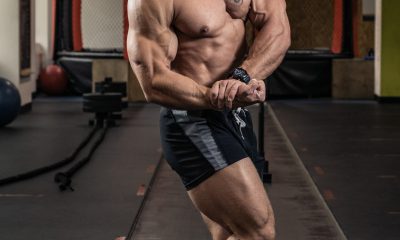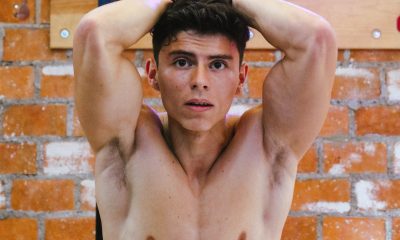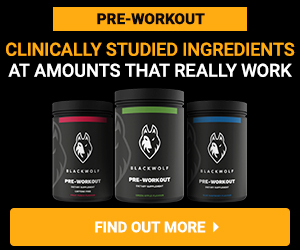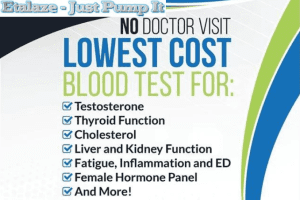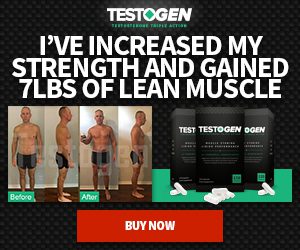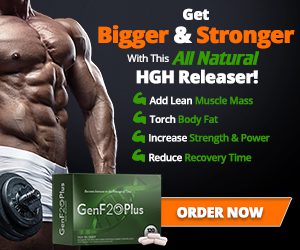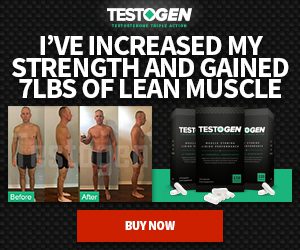Nutrition
Should A Growing Teen Pay Attention To Nutrient Timing Or Just Eat?
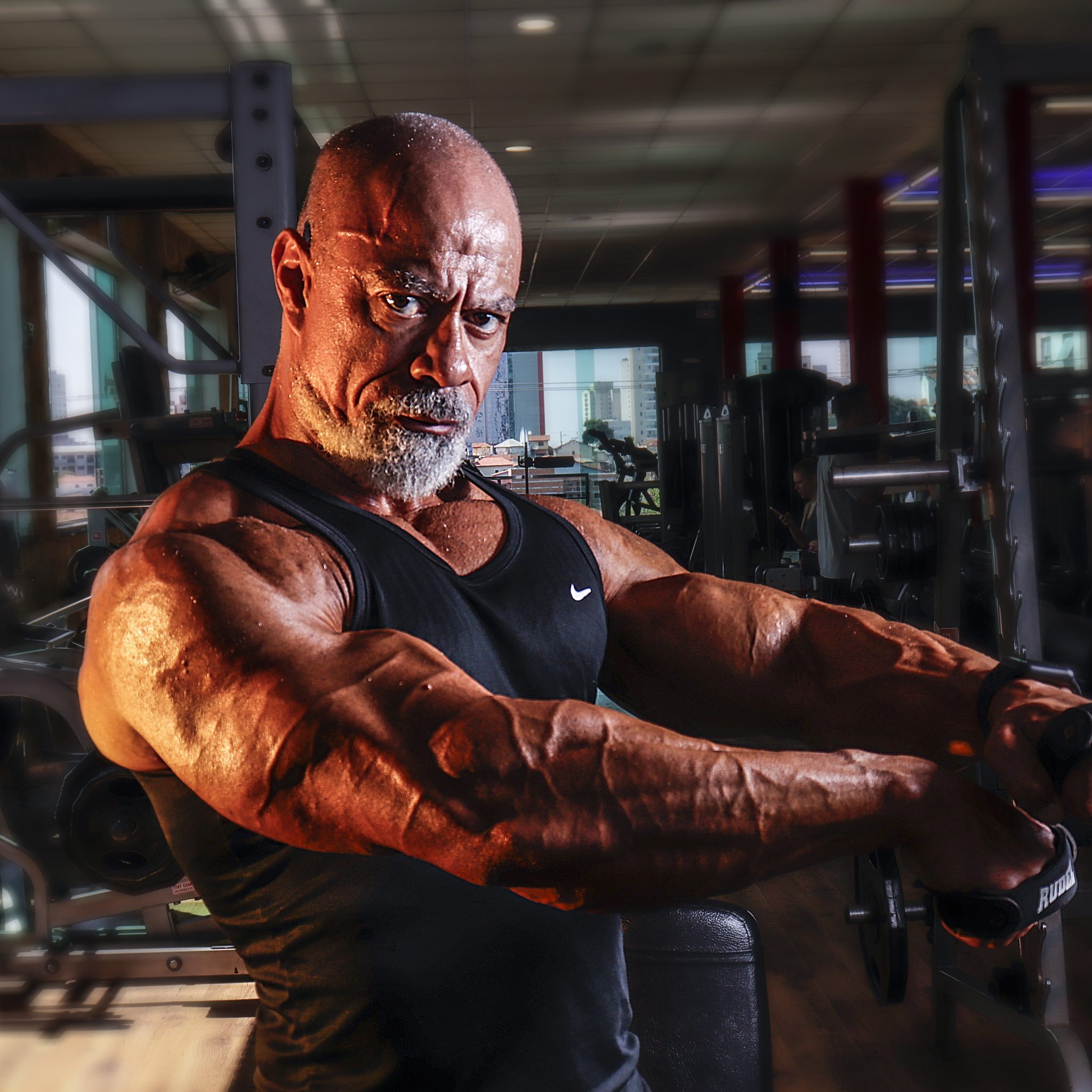
When it comes to teens, nutrition becomes a very essential thing of their life. This is because it is during these times that they are experiencing a lot of changes especially physically but also mentally and functionally. During Nutrient Timing that most people engage in sporting activities. Therefore, when looking into the aspect of nutrition for the teens, it is also important to consider whether such a teen actively involves in sporting or may working activities or not.
What is nutrient timing?
What now is nutrient timing? Nutrient timing involves having specified times of taking foods so that you end up with certain body properties that you need. Nutrient timing therefore seems a strategic way of getting certain outcomes for the teens. The question therefore remains, is it necessary? Considering teens in sporting activities as well as bodybuilding, nutrient timing seems to be a great idea since its sole purpose includes:
- Aiding in muscles growth.
- Improving sports performance.
- Accelerating fat loss.
Evolution of Nutrient Timing
Nutrient timing has been around for a while. For almost 50 years, Nutrient timing has formed a very crucial part of bodybuilders and several researchers have done serious work to find its many benefits. The benefits are not well brought out mainly of some few limitations. These include:
- The use of short-term blood makers meaning that the long time benefits are left out.
- The use of ultra-endurance athletes during the study.
Related Article:: How to Do Bodybuilding Above 50 years Age
The Concept of Anabolic Window
Something very controversial about nutrient timing is the anabolic window. It is sometimes referred to as the window of opportunity and is a period of about 30 minutes after workouts during which it is assumed that the body can absorb nutrients perfectly. This is a concept that is still debatable, with some people arguing that it a fact while still others believe that it is a myth.
How Does the Concept Seem To Work?
The theory of anabolic window assumes to work based on two important aspects.
1. Carb Replenishment Principle
This aspect is supported by abundant research, with carbs especially glycogen being replenished within about 30 minutes to an hour. This is usually after workouts and hence the need for immediate replenishment. This of course serves to increase performance and recovery.
However, there seems to be a problem. Despite the fact that the concept is well in line with the theory, this will only imply that timing is only going to be of essence if you have a teen who is dedicated to training several times a day. It therefore becomes irrelevant to people who train once are not into training at all.
Another thing that seems not in line is the finding that training will be even better with lower amounts of glycogen in the muscles. This largely applies to teens who are actively involved in fat burning and fitness programs. Immediate replenishment has in fact been shown to reduce the benefits that should be coming out of the respective programs. It is therefore important to note that this aspect does not necessarily apply to most people making the theory of anabolic window almost a myth.
Must Read:: 8 Bodybuilding Myths Those Are Total Bullshit
2. Protein Intake Principle
The protein intake principle works on the basis of using proteins to stimulate the synthesis of proteins in the muscles. Protein synthesis in the muscles is very crucial because it facilitates their growth and also aids in recovery. However, is it necessary that one replenish the proteins right after working out? Well, research has spelt out clearly that it is not necessary and that what is important is actually the total daily protein intake. By taking high quality proteins during each meal, the concept of anabolic window becomes useless and more or less a waste of time and energy.
Buy it >> HERE
The Concept of Pre-Workout Window
Another very important concept that is important in nutrition timing and which therefore also determines whether teens should pay attention to nutrition timing or not is the concept of the pre-workout window. Unlike the anabolic window, this concept to some extend tends to agree more with researchers and experts in the field. This is because keeping the correct time for the pre-workout has been shown to greatly aid performance. This is to mean that there is a timing for teens who wish to burn the fat in their body and there is timing for the teens who wish to enhance their performance in such things as sports.
Carbs are very essential in this window. They provide the energy you need and therefore should never be skipped. A common mistake that people make is eating immediately before the actual workout. This ensures that there is minimal competition between the stomach and the muscles and therefore lets the muscles concentrate on the performance. An allowance of 1 to about 4 hours will generally be perfect.
Another thing to include to your pre-workout nutrition will be sufficient water. This is very essential and drinking about 430 ml of water before a workout will most likely boost the performance.
Must Read:: Bodybuilding Diet Myths for Beginners
It is advised that vitamins should not be taken during this phase. This is because of their negative influence on performance and serving to minimize the benefits of the workout. Thus, in as much nutrition timing as a whole is more of a false myth, some concepts like this pre-workout window is important. The main benefits of adhering to this include:
- Help maximize the performance of the teen.
- Improve the body structure and composition.
- Fat loss acceleration.
Relationship between Nutrient Timing and Breakfast
So what should your teen eat for breakfast or should he or she even it at all? It is a very debatable concept with some expert advising that it may not be necessary to even eat breakfast while others advising certain types of meals with specific nutrients. For those who recommend breakfast, they argue that it should contain very low amounts of carb and high amounts of fat. Such a breakfast will of course help raise the energy levels, maintain higher mental function and accelerate fat burning from the body.
There is no enough evidence to support this though and everything is currently in grey areas. Anything is possible and some even propose that proteins during this time will be great. Therefore, for teens as well as any other person who is looking into the issue of nutrition timing, breakfast timings are not well researched. Ones preferences and also what one wants to achieve should be the driver.
Related Article:: Muscle Building Breakfast Ideas: Start Your Day Right
Relationship between Nutrient Timing and Night
Almost every concept for nutrient timing seems to be a false myth and this one seems to be yet another one. It is generally believed that reducing carbohydrates at night will definitely lead to weight loss. It is a false myth that has been spread across the globe to the extent that people are actually into it. In truth however, when you reduce the carbs, the calories are also going to be reduced. The calorie-deficit that is the result of this will ensure that there is weight loss. It is therefore not a matter of timing but a matter of reduction of one thing, which then affects another.
Reducing carbs at night might in fact be the opposite of what is expected. This is because some experts have proved that carbs at night might help improve sleep quality. For teens therefore, nutrient timing at nigh seems to be out of question and not a suggestion at all.
Nutrient Timing Vs. Just Eating
Despite the fact that nutrient timing has been around for several decades now, more and more research is slowly disapproving it and making it obsolete. What remains is for the teens therefore is simply eating without the stress that comes along with nutrient timing. However, there must be order behind just eating as we are going to see next.
Teen athletes
When talking about nutrition and teens, it is important to consider this concept of physical activity. This is because teens who are physically active have unique nutrient requirements, which we will consider here.
Teen Nutrition Composition
For teenagers, their food should contain certain components that help sustain them through this period. They should be able to get the right balanced nutrients with more calories and most basic nutrients such as proteins.
A teen’s diet should comprise more or less of the following:
- Fruits and vegetables that contributes to about 2000 calories every day.
- Calcium about 1300 mg per day. The calcium should be fat-free or with less fat. The common sources milk and yogurt.
- Proteins which are much needed to help build muscles and as well as other rapidly growing muscles. Popular sources of proteins include lean meat and poultry.
- Foods, which are rich in iron. Iron is essential in both girls and boys but will be particularly useful in girls who lose a lot of blood through menstruation.
- Whole grains. Whole grains are very good sources of the much needed energy during the teen phase of life among other important roles.
- For teenagers, fat should be limited as much as possible. Fat of about 2 to about 30 percent of the total calories will be a good amount for the teens.
Vitamins and Minerals
Vitamins and minerals should be part and parcel for teen nutritional diet. There are several vitamins and minerals all of which serve different functions in the body. Calcium and iron are particularly important for those teens who are physically active because they bring about strong bones as well as sufficient supply of blood to the muscles respectively. Iron is abundant in many types of foods such as the fish and most green leafy vegetables and many more others. Calcium on the other hand is rich in such foods as milk and milk products.
Buy it >> HERE
Must Read:: Best Diet Plan for Bodybuilders 2019
Many vitamins are also very important and can easily be acquired from different types of foods especially fruits and vegetables. Having a balanced diet is sure to give the best result in terms of getting the required vitamins as well as mineral salts.
Carbs
Of course, when one thinks about energy sources, the first thing that comes to mind is carbohydrates. This have been proved beyond doubt to be a very nice source of energy and are therefore a very crucial part of teen nutrition. Teens should never think of cutting back on carbs and especially when they are active in sports, it may cost them a lot in terms of performance.
A good thing about this carbs is that they are readily available in most foods and hence there deficiency is rare. Sources include fruits, vegetables and whole grains. However, there is some selectivity when it comes to eating the carbohydrates. For instance, processed grains are not generally recommended while whole grains such as brown rice are more appropriate in the sense that they provide extra nutrients that may not be in processed grains. Also, carbohydrates that have a lot of sugar should be avoided as much as possible. Such carbs when taken especially before the game tend to gives people a quick burst of energy within a short time and then leave them without anything shortly afterwards.
Proteins
For proteins, it will depend on whether the teen is physically active or not. Physically active teens will definitely need more proteins as compared to their less active peers. Proteins are easily acquired from the common foods that teens eat now and then every day. While it is generally assumed that eating lots of proteins leads to gain of large quantities of muscles, it is not very true and such muscles can only be acquired from training and abundant working out. In fact, those teens who take large quantities of proteins in the name of gaining large and strong muscles end up with some side effects that include
- Occurrence of dehydration.
- Loss of considerable amounts of calcium from the body.
- Occurrence of kidney abnormalities.
Protein sources include fish, lean meat and peanut butter.
Fats
Should teens take fats or burn them? Well, technically speaking, excess fats are not recommended. However, a little fat is very necessary and teens should purpose on having them in their diet. Fats are important for long lasting energy. Carbs get used up fast and therefore fats come in a little while later after the carbs are done.
Fats also differ in types and teens are advised to take certain types and avoid other types. The main types are unsaturated and saturated fats. Unsaturated fats are considered healthier for teens and can be found in such foods like vegetable oils and some types of fish. The unsaturated fats can further be grouped into trans and cis fats. Again, cis fats are the best for teens as well as any other person. Some of these fats are particularly abundant in meat and other high fat dairy products.
For fats, timing can be of essence. It is not good for example to consume fats a short time before and after exercise for physically active teens. This is based on the fact that fats tend to make digestion slow.
Are supplements essential for teens?
For supplements, it is really good if teens know the consequences that using certain supplements will bring. There are certain supplements that can be used without actually doing any harm while there are others that come with extreme negative effects.
- Anabolic steroids
Anabolic steroids are among the most commonly abused supplements nowadays especially for teens in sports as well as bodybuilders. For teens, these should be supplements that they should try as much as possible shun. This is because most anabolic steroids are derivatives of hormones or hormones and will definitely have adverse side effects.
Anything that interrupts with the normal hormonal composition will also interfere with the normal functioning of the body. Common side effects of using anabolic steroids include:
- Male pattern of hair loss on the forehead.
- Shrinkage of the testicles.
- Growth of facial hair in girls.
- Depression and mood swings.
Salt tablets
Salt tablets are common supplements to reduce dehydration. However, the belief seems to be a false one since salt tablets demonstrate to actually be the reason behind dehydration in teens and people who use them. The salts also, especially when taken in large quantities tend to have side effects such as:
- Causing nausea and vomiting.
- Brings about painful cramps.
- Causes diarrhea.
- Damage to the stomach mucosa.
Proteins and energy bars
There are some supplements in form of proteins and energy bars. These are some of the supplements which are not 100% important and at the same time not 100% useless. They have not been implicated in doing lots of harm to the body and therefore can safely be used occasionally.
Buy it >> HERE
Dehydration and teen Nutrient Timing
Water is also another very important composition of teen nutrition that is very essential. Teens should always ensure that they avoid dehydration as much as possible. This is especially when it comes to teens involved in sporting activities. A lot of water is lost during exercises and this might be a great contributor to dehydration. Dehydration is related to such conditions as the feeling of overheated and some form of headaches. Teens in hot and humid conditions are likely to get dehydrated.
Dehydration will definitely lead to reduced performance and that is why people not only teens should strive to remain as dehydrated as much as possible. Different people require different amounts of water daily. This will depend largely on the size of the person, their age, how much they are involved in physical activities as well as the surrounding environmental conditions.
Highly physically active teems should at least drink water just before and after exercise as well as during the exercise every about 15 minutes. It is not necessary that one feel thirst before drinking water. Thirst in fact simply implies that you begin dehydrate a long time ago. At the same time, it is not necessary that you force yourself to drink water.
Some sports provide specific nutrient added water. The water is usually important in case of long periods of training but water is no different either. Carbonated water and drinks are not preferred during the exercises due to their probability to cause stomachache. Also don't drink energy drinks. In fact, avoid the energy drinks at all costs because they have caffeine as well as other components, which have the stimulant effect of caffeine.
Caffeine and Physically Active Teens
Teens who are in sports sometimes are tempted to use supplements with caffeine such as the energy drinks that we have talked about above. Caffeine has many effects in the body but importantly here is that it is a diuretic. Diuretics are substances that basically cause formation of more urine by the kidneys. It might be one of the causes of dehydration but the concept needs more research. Due to its diuretic effects, it cause an increase in the heart rate as well as leading to hypertension. It also leads to reduced quality of sleep and also having an effect of making someone abnormally anxious. The effects when combined will lead to a reduction in performance.
Buy it >> HERE
Despite the fact that some experts have found small benefits of caffeine especially in those endurance sports, it is best to keep away from it. Its benefits seem to be way below the side effects.
Conclusion
Teen nutrition can be very confusing. While there are times when nutrient timing is good, sometimes just eating will be a really good option. Nutrient timing has come a long way and while it is being seen as a false myth, there are some concepts that actually hold true and should be good for teenagers and there complicated nutritional needs. During teenage time is also a time when most people involves in sporting activity. They need to eat certain foods and avoid certain supplements. Weighing the two concepts, it is just good that teens just eat instead of chaining themselves with a theory that lacks full scientific evidence.
Bodybuilding
Calorie Dumping: A Bodybuilder’s Guide
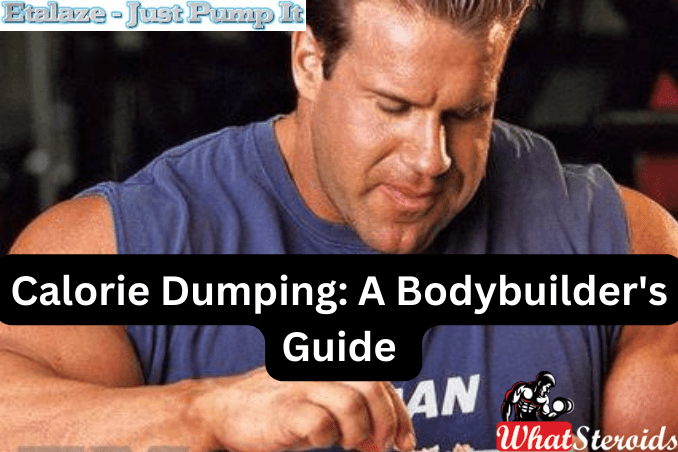
"Calorie dumping" in bodybuilding refers to a strategy where an individual consumes a large number of calories in a single meal, often following a period of low-calorie intake.
This practice is believed to support muscle growth by providing a surplus of energy and nutrients.
The idea is that after a period of restricted calorie intake, the body becomes more efficient at utilizing nutrients, making it more receptive to absorbing and utilizing the surplus calories in a short period.
However, this approach may not suit everyone and should be approached cautiously as it can lead to discomfort and potential digestive issues.
Calorie dumping, also known as refeeding or cycling calories, is sometimes preferred by bodybuilders to help prevent metabolic adaptation and aid in breaking through plateaus.
By occasionally consuming higher calorie levels, they aim to boost metabolism, replenish glycogen stores, and maintain hormone balance for better muscle growth and fat loss in the long term.
Bodybuilders focus on controlled nutrition plans to optimize muscle growth and minimize fat gain. However, occasionally, you might increase the calorie intake temporarily before an intense workout or competition to boost energy levels, but this isn't considered calorie dumping in the traditional sense.
ALSO READ: Your Guide to Become A Successful Personal Trainer
Long-term and Short-term Benefits of Calorie Dumping
Short-term benefits include replenishing glycogen stores, boosting metabolism, and providing mental relief from a strict diet.
Also known as a "refeed" or "cheat day," bodybuilders do calorie dumping for several long-term reasons:
Best Foods for Calorie Dumping
Bodybuilding
Chia Seeds in A Bodybuilder’s Diet: An Expert’s Advice

Chia seeds are a nutrient-dense food, offering protein, fiber, healthy fats, and various vitamins and minerals. While they're not a direct source of muscle-building protein like meat or eggs, they can complement a balanced diet by providing essential nutrients important for overall health, which indirectly supports muscle development when combined with a proper exercise routine. However, solely relying on chia seeds for building muscle mass might not be sufficient—you'd likely need a variety of protein sources along with a consistent workout regimen for optimal muscle growth.
Chia seeds are popular among bodybuilders due to their high protein and omega-3 fatty acid content. They provide a good source of nutrients, help in muscle repair, and offer sustained energy throughout workouts. Additionally, their high fiber content can aid in digestion and help manage hunger, which can be beneficial for those trying to maintain a specific diet while building muscle.
Where to Buy Chia Seeds for Your Bodybuilding Diet
These are commonly available in various grocery stores, health food stores, and even online marketplaces like Amazon or specialty health websites. You can check your local supermarkets, health food stores, or browse online to purchase chia seeds for your bodybuilding diet. Many health-focused stores offer bulk options, which can be more cost-effective if you plan to use them regularly in your diet.
You can also try purchasing the seeds from popular online retailers like Walmart, or health food stores such as Whole Foods Market, Thrive Market, or Vitacost. There are also specialty health stores like iHerb or The Vitamin Shoppe that carry chia seeds.
Related Article: A New Caffeine? What You Need to Know about Teacrine
Preparation
These magical seeds can be quite versatile in the kitchen! Here are a few methods you can try:
After cooking it, you can serve them in various ways. You might consider adding them to yogurt, smoothies, oatmeal, or salads for an added nutritional boost. You can also use them in baking as an egg substitute or make a chia pudding by mixing them with your choice of liquid (like almond milk) and allowing them to gel.
What A bodybuilder Gets From the Magical Seeds
Rich in Protein
Chia seeds are a great source of plant-based protein, containing roughly 4.7 grams of protein per ounce. For bodybuilders, their protein content is beneficial for muscle repair and growth.
Omega-3 Fatty Acids
They are an excellent source of omega-3 fatty acids, particularly alpha-linolenic acid (ALA). These healthy fats support heart health, reduce inflammation, and aid in muscle recovery, all beneficial for bodybuilders. The omega-3s in chia seeds can also help maintain joint health, enhance stamina, and assist in managing weight. Integrating chia seeds into a balanced diet can contribute to overall well-being and support a bodybuilder's goals.
Fiber Content
They contain a high amount of soluble and insoluble fiber, with about 10 grams of fiber in a 1-ounce (28-gram) serving.
Helps with digestion and promotes a feeling of fullness, aiding in weight management.
Antioxidants
The seeds contain antioxidants like flavonoids and phenolic compounds that help combat oxidative stress in the body, potentially reducing the risk of chronic diseases. These antioxidants can help protect cells from damage caused by free radicals. Including chia seeds in your diet can contribute to overall health and well-being due to their antioxidant properties. Fight off free radicals that can damage cells post-workout with these magical seeds.
Minerals
They contain calcium, phosphorus, magnesium, and manganese, contributing to bone health, energy metabolism, and antioxidant activity. These minerals support various bodily functions, from maintaining strong bones to aiding muscle function and energy production.
Hydration
When soaked, they form a gel that retains water, aiding in maintaining hydration during workouts.
What Are The Disadvantages of Overconsuming Chia Seeds
Chia seeds can be beneficial for bodybuilders due to their nutrient content, but overconsumption might cause gastrointestinal issues or interfere with hydration.
They're high in fiber, so eating too many could cause digestive problems like bloating or diarrhea. Plus, their omega-3 fatty acids might interact with certain medications or cause allergic reactions in some people. Moderation is key!
Overall
In summary, Chia seeds are a powerhouse for bodybuilders! They offer a high protein content, essential for muscle repair and growth. Additionally, they're packed with omega-3 fatty acids for reducing inflammation and providing sustained energy during workouts. Their fiber content aids in digestion and helps maintain a steady release of energy. Plus, their versatility allows for easy incorporation into shakes, smoothies, or as a topping for meals, making them a convenient addition to a bodybuilder's diet.
Don't Miss: 10-Week Army Combat Fitness Test (ACFT) Plan
Nutrition
Everything Nutritional Food: What’s Too Much Or Too Little

When it comes to bodybuilding, overeating can result in consuming too many calories and potentially gaining weight, which may not be ideal for muscle building. Therefore, it is crucial to maintain a balanced and personalized nutrition plan that aligns with your specific goals. By that we're talking about nutritional food every bodybuilder must stick to.
Consuming more calories than your body needs for muscle growth can lead to fat gain. Similarly, not eating enough food can hinder muscle development. It's crucial to calculate your calorie and macronutrient needs based on your goals and activity level and consult with a fitness or nutrition professional for personalised guidance.
How to Measure Calories to Ensure Nutritional Food as a Bodybuilder
As a bodybuilder, accurately measuring calorie intake is crucial for your nutrition plan. Here are some steps to help you count calories in your food:
Use a Food Scale
Invest in a digital kitchen scale to weigh your food. This allows you to measure portions accurately.
Read Nutrition Labels
Many packaged foods have nutrition labels that provide calorie information per serving. Pay attention to serving sizes and servings per container.
Use Calorie Tracking Apps
Many smartphone apps like MyFitnessPal and Cronometer make it easy to track your calorie intake. You can search for the foods you're eating and specify the portion size, and the app will calculate the calories.
Reference Online Databases
If you can't find a nutrition label, you can often find calorie information for various foods in online databases and reference books.
Learn to Estimate
Over time, you'll better estimate portion sizes and calorie content. This skill is valuable when you can't weigh or measure every meal.
Consider Macronutrients
While tracking calories, don't forget to pay attention to your macronutrient intake (proteins, carbs, fats). These are also crucial for bodybuilders.
Be Consistent
It's essential to be consistent in tracking. Measure and record your food every day to get a better understanding of your calorie intake.
Adjust for Cooking
Remember that cooking can change food weight (due to water loss). Weigh food before cooking for more accurate calorie tracking.
Consult a Nutritionist
If you're unsure about your calorie needs or struggle with tracking, consider consulting a registered dietitian or nutritionist who can help you create a personalised nutrition plan.
Related Article: 30 Gym Slang Terms Explained
Measuring and tracking calories accurately is an essential part of bodybuilding, as it helps you control your intake and adjust your diet to meet your specific goals.
Nutritional Food You Must Include In Your Diet
To effectively build muscle mass, it's essential to maintain a balanced diet consisting of nutrient-rich foods. Here are some foods that are best for building muscle:
1. Lean Proteins
Protein is essential for muscle growth. Opt for lean sources like chicken, turkey, fish, lean beef, tofu, tempeh, eggs, and low-fat dairy products. Plant-based sources like beans, lentils, and quinoa are also excellent options.
2. Complex Carbohydrates
Carbohydrates provide energy for workouts and recovery. Choose complex carbs like whole grains (brown rice, quinoa, oats), sweet potatoes, and whole-wheat pasta.
3. Healthy Fats
Good fats are essential for overall health. Include sources like avocados, nuts, seeds, and olive oil.
4. Dairy or Dairy Alternatives
Dairy products and dairy alternatives like almond milk or soy milk can provide additional protein and calcium.
5. Fruits and Vegetables
These are rich in vitamins, minerals, and antioxidants, which support overall health and recovery.
6. Nuts and Seeds
Almonds, walnuts, chia seeds, and flaxseeds are excellent sources of healthy fats and protein.
7. Greek Yogurt
It's high in protein and can be a good snack or breakfast option.
8. Salmon
Rich in omega-3 fatty acids and high-quality protein, salmon can support muscle growth and overall health.
9. Quinoa
A complete protein source and a great alternative to rice or pasta.
10. Beans and Lentils
These are excellent sources of plant-based protein and fibre.
11. Whey Protein
A convenient way to supplement your protein intake, especially post-workout.
12. Eggs
Eggs are a highly bioavailable source of protein and contain essential amino acids.
13. Lean Beef
It provides high-quality protein, iron, and essential nutrients.
14. Chicken or Turkey Breast
Lean poultry is a staple for many bodybuilders due to its protein content and low-fat
15. Tofu and Tempeh
Good plant-based protein sources, especially for vegetarians and vegans.
16. Cottage Cheese
It's high in protein and low in fat, making it a great addition to your diet.
A well-balanced diet is vital. Ensure you consume enough calories to support muscle growth and consider your macronutrient balance. Staying hydrated is also essential. You might need to adjust your calorie and protein intake based on your goals, activity level, and body size, so it's a good idea to consult a nutritionist or dietitian for a personalised plan.
Should Bodybuilders Avoid Some Not-So- Nutritional Food Altogether?
While there are no foods that bodybuilders must avoid, some foods are less ideal due to their potential negative impact on health and fitness goals. These include:
Read More: Meet the World’s Strongest Grannies
Processed Foods
Highly processed foods are often high in empty calories, added sugars, unhealthy fats, and low in nutrients. They can contribute to weight gain and hinder muscle-building efforts.
Sugary Snacks and Beverages
Foods and drinks with excessive added sugars can lead to energy spikes and crashes, as well as weight gain. They offer little nutritional value.
Trans Fats
Foods containing trans fats, such as many fast-food items and some packaged baked goods, are linked to heart disease and should be limited
Sugary Cereals
Many breakfast cereals contain added sugars and lack essential nutrients. Opt for whole-grain, low-sugar options instead.
Alcohol
Excessive alcohol consumption can impair muscle recovery and protein synthesis. It can also contribute to dehydration and poor dietary choices.
Excessive Fast Food
While an occasional indulgence is acceptable, relying on fast food for a significant portion of your diet can lead to poor nutrition and hinder muscle gains.
Highly Caffeinated or Sugary Energy Drinks
These may provide a temporary energy boost, but the sugar and caffeine content can harm health and lead to crashes.
Fried Foods
Fried foods often contain unhealthy fats and calories. While occasional consumption is acceptable, they shouldn't be a regular part of your diet.
Excessive Saturated Fats
Limit foods high in saturated fats, like fatty cuts of red meat and full-fat dairy products. While some saturated fats are okay, too much can harm heart health.
Excessive Salt
High-sodium foods can lead to water retention and may negatively affect blood pressure. Limit processed foods and opt for fresh, whole foods.
It's essential to maintain balance and moderation in your diet. Occasional indulgences are OK, but your primary focus should be on nutrient-dense, whole foods that support your muscle-building and overall health goals. Consulting with a nutritionist or dietitian can help you create a personalised diet plan that aligns with your objectives.
Sea Food to Consider for Gains
Seafood is a healthy and delicious choice, rich in protein, omega-3 fatty acids, and various essential nutrients. Here are some healthy seafood options and basic preparation methods:
Salmon:
-
- Grilled: Season with herbs, spices, and a bit of olive oil, then grill until it flakes easily.
- Baked: Marinate with lemon, herbs, and olive oil, then bake in the oven.
- Pan-Seared: Sear in a hot skillet with a little oil, skin side down, until crispy, then finish in the oven.
-
Tuna:
- Sushi/Sashimi: Serve raw as sashimi or in sushi rolls.
- Grilled or Broiled: Season with soy sauce, ginger, and garlic, then grill or broil until desired doneness.
-
Shrimp:
- Shrimp Scampi: Sauté in garlic, butter, and white wine.
- Grilled: Thread onto skewers and grill with marinade or spices.
-
Cod:
- Baked: Coat with breadcrumbs and herbs, then bake until it flakes easily.
- Poached: Simmer in seasoned broth or white wine until opaque.
-
Mackerel:
- Pan-Fried: Coat with a light breading, then pan-fry until crispy.
- Smoked: Serve smoked mackerel with crackers and cream cheese.
-
Sardines:
- Canned: Eat canned sardines with olive oil, lemon, and crackers or on top of a salad.
- Grilled: Season and grill sardines with olive oil until they're crisp and fragrant.
-
Trout:
- Stuffed: Stuff with herbs, lemon, and garlic, then bake or grill.
- Almondine: Sauté with butter, lemon juice, and toasted almonds.
-
Haddock:
- Baked: Season with herbs and breadcrumbs, then bake until tender.
- Poached: Poach in a flavorful broth or white wine.
-
Scallops:
- Pan-Seared: Sear in a hot pan with butter or oil for a few minutes on each side.
- Broiled: Season and broil until lightly browned and opaque.
When preparing seafood, remember to handle it safely and avoid overcooking, as seafood tends to become dry when overdone. You can customize these cooking methods with various herbs, spices, and sauces to suit your taste preferences. Additionally, be mindful of sustainable seafood choices and check for local advisories on fish consumption, especially for pregnant women and children, due to potential mercury content.
Must Read: Using SARMs on Top of a Steroid Cycle: DOs and DON
Proper Storage of Food to Keep It Fresh
-
Refrigeration:
- Keep perishable items like meat, dairy, and leftovers in the refrigerator at or below 40°F (4°C).
- Store raw meat separately to prevent cross-contamination.
- Use airtight containers or food storage bags to seal items to prevent moisture loss and odors from spreading.
-
Freezing:
- Freeze items at 0°F (-18°C) or lower for long-term storage.
- Use freezer-safe containers or vacuum-sealed bags to prevent freezer burn.
- Label items with the date to keep track of storage time.
-
Pantry:
- Store dry goods like pasta, rice, and canned foods in a cool, dry place away from direct sunlight.
- Use airtight containers to keep pests out and maintain freshness.
-
Fruits and Vegetables:
- Some fruits and vegetables should be stored separately due to ethylene gas production (e.g., apples and avocados).
- Check for specific requirements for each item, as some should be stored in the fridge, while others are better at room temperature.
-
Keep an Eye on Expiration Dates:
- Regularly check expiration dates on packaged foods and discard items that have passed their date.
-
Properly Seal Containers:
- Ensure containers are tightly sealed to prevent moisture and air from entering, which can lead to spoilage.
-
FIFO (First In, First Out):
- Practice the "first in, first out" method to use older items before newer ones to avoid food waste.
-
Handle Leftovers:
- Refrigerate or freeze leftovers promptly, and use them within a reasonable time frame.
-
Be Mindful of Temperature Zones:
- Know the temperature zones in your fridge (e.g., coldest at the back and warmest on the door) and store items accordingly.
-
Regularly Clean Your Storage Areas:
- Clean your refrigerator, pantry, and cabinets to prevent the growth of bacteria and mold.
Remember that specific foods may have unique storage requirements, so it's important to check packaging labels and do some research when in doubt. Proper food storage helps maintain freshness and reduces food waste.
Packing Your Food Discretely to Eat at the Gym
- Choose the right container: Opt for containers that are compact and easy to carry, like a small Tupperware or a bento box.
- Select inconspicuous foods: Choose foods that are quiet to eat and won't disturb others. Avoid noisy snacks like chips.
- Pack pre-portioned snacks: Prepare single servings of your snacks to avoid rustling around in a noisy bag or container.
- Use noise-reducing wrappers: Wrap your snacks in noise-dampening materials, like cloth napkins or silicone food wraps, to reduce crinkling sounds.
- Opt for quieter options: Consider snacks like protein bars, pre-cut fruit, or a smoothie in a shaker bottle, which are less likely to make noise.
- Be mindful of odors: Choose foods that won't emit strong odors in the gym. Stick to odorless options like nuts, dried fruit, or yogurt.
- Pack a reusable water bottle: Bring a reusable, non-disruptive water bottle to stay hydrated without making noise with plastic crinkling.
Remember to be respectful of others in the gym and maintain good hygiene when consuming your discreetly packed food.
Going for a Jog and Want to Snack In Between?
Snacking while jogging can be tricky, as it's important to maintain focus on your run and safety. If you need a quick energy boost, consider portable, easy-to-eat options like energy gels or chews that can be consumed with minimal interruption.
Just make sure to dispose of the packaging responsibly. Hydration is often more critical than snacking during a run, so prioritize water or a sports drink for longer workout.
It's best to consume easily digestible snacks that provide a quick energy boost. Some good options include energy gels, granola bars, banana slices, or a handful of raisins.
When running or jogging, it's important to consume snacks that provide a quick energy boost and are easy to carry. Some good options include:
- Energy gels or chews: These are specifically designed for quick energy replenishment during exercise.
- Bananas: They're portable, rich in carbohydrates, and contain potassium.
- Trail mix: A mix of nuts, seeds, and dried fruits can provide a good balance of nutrients.
- Nut butter packets: Portable and packed with healthy fats and protein.
- Rice cakes or rice bars: A lightweight, easy-to-carry option with carbohydrates.
- Fig bars: These provide a blend of carbohydrates and are easy to eat on the go.
You can always experiment to find what works best for your body and your preferences while running.
Tips to Prepare a healthy Balanced Nutritional Food
Preparing a healthy, balanced meal as a bodybuilder involves selecting the right components in the proper proportions. Here are steps to help you prepare such a meal:
1. Choose a Lean Protein Source
Start with a lean protein source such as chicken, turkey, fish, lean beef, tofu, or beans. Protein is crucial for muscle growth and repair.
2. Add Complex Carbohydrates
Incorporate complex carbohydrates like brown rice, quinoa, sweet potatoes, or whole-wheat pasta. Carbs provide energy for your workouts and help replenish glycogen stores.
3. Include Vegetables
Vegetables are rich in vitamins, minerals, and fibre. Opt for various colourful options, like broccoli, spinach, bell peppers, and carrots.
4. Incorporate Healthy Fats
Include sources of healthy fats like avocados, nuts, seeds, or olive oil. Fats are essential for overall health and hormone production.
5. Measure Portions
Use a food scale to measure and control your portion sizes. Balancing your macros (protein, carbs, and fats) is essential.
6. Season and Flavor
Use herbs, spices, and low-sodium sauces to add flavour to your meal without excess calories or sodium.
7. Hydrate
Don't forget to drink water. Staying hydrated is essential for overall health and muscle function.
8. Preparation Methods for Nutritional Food
Opt for healthy cooking methods like grilling, baking, steaming, or sautéing with minimal oil. Avoid deep-frying.
9. Post-Workout Nutrition
After a workout, consider a post-workout meal or shake that combines protein and carbohydrates to support muscle recovery and replenish glycogen stores.
10. Plan
Meal planning and preparation in advance can help you stick to your nutrition goals. Cook larger batches and store leftovers for future meals.
11. Monitor Progress
Keep track of your dietary intake and how it affects your body and performance. Adjust your meal plan as needed to meet your goals.
12. Consult a Nutritionist
If you're unsure about portion sizes, macros, or specific dietary needs, consult a nutritionist or dietitian who can create a customised nutrition plan.
It's important to customize your meals to your individual goals, activity level, and dietary preferences as everyone's nutritional needs vary. Consistency in healthy eating, combined with a well-structured workout plan, will contribute to success in bodybuilding.
Best Calorie-Measuring Equipment and Machines
For bodybuilders and fitness enthusiasts looking to accurately measure calorie intake, various kitchen appliances and gadgets can be helpful. Here are some of the best calorie-measuring machines and tools:
Digital Kitchen Scale
A high-quality digital kitchen scale is essential for measuring the weight of food items accurately. It allows you to calculate calories based on portion size.
Nutrition Scale
Some kitchen scales have built-in nutritional information databases. You can input the food item's code or name, and the scale calculates the nutritional content, including calories.
Smartphone Apps
There are several smartphone apps, such as MyFitnessPal and Cronometer, that allow you to track your calorie intake by searching for foods and specifying portion sizes. These apps often have extensive food databases.
Food Processors with Nutrition Calculators
Some food processors have built-in nutrition calculators that provide information about the calories, macronutrients, and other nutritional content of your recipes.
Smart Kitchen Gadgets
Various smart appliances, like intelligent blenders and air fryers, may have built-in nutrition tracking features. They can provide approximate nutritional information for your recipes.
Handheld Calorie Counters
These portable devices are designed precisely to calculate the nutritional content of food. You input the food item or scan its barcode, and the device provides calorie information.
Online Recipe Analyzers
There are websites and software tools that allow you to input the ingredients and quantities of your recipes, and they will calculate the nutritional content, including calories.
Meal Prep Containers
While not a machine per se, having portion-controlled meal prep containers can help you estimate and control calorie intake by pre-measuring your meals.
When it comes to measuring calories, choosing the right tool depends on your preferences and requirements. Digital kitchen scales are essential for precise portion control, while smartphone apps offer convenience and access to extensive databases. Consider your budget, the features you need, and your level of tech-savviness before selecting the appropriate calorie-measuring machine to help you achieve your bodybuilding goals.
Why Bodybuilders Must Eat Healthy Before a Competition
Bodybuilders must eat healthy before a competition for several important reasons:
1. Optimal Performance
Eating a nutritious diet before a competition ensures your body is fueled and ready to perform at its best. Nutrient-dense foods provide the energy required for intense workouts and help maintain strength and stamina during the competition.
2. Muscle Preservation
Proper nutrition helps preserve lean muscle mass. In the weeks leading up to competition, bodybuilders often go through a cutting phase to reduce body fat. Eating a balanced diet with adequate protein helps prevent muscle loss while shedding excess fat.
3. Nutrient Timing
The timing of meals and nutrient intake is crucial. Bodybuilders typically follow a precise nutrition plan leading up to competition, including carb-loading to maximise muscle glycogen stores and protein intake to support muscle repair and growth.
4. Recovery
Nutritional food aids in recovery between workouts. Intense training sessions can lead to muscle damage, and consuming the proper nutrients helps speed recovery and reduce the risk of overtraining.
5. Aesthetics
The appearance of bodybuilders on stage is highly dependent on their diet. The right balance of macronutrients, proper hydration, and avoiding foods that cause bloating or water retention contribute to a more chiselled and defined physique.
6. Mental Focus
Nutrition affects mental clarity and focus. Eating a healthy diet before a competition can help bodybuilders stay mentally sharp, making it easier to follow their routines and perform their best.
7. Digestive Comfort
Avoiding foods that can cause digestive discomfort, such as excessive fibre or spicy foods, is crucial to prevent gastrointestinal issues during the competition.
8. Hydration
Proper hydration is vital for overall health and performance. Dehydration can lead to muscle cramps, fatigue, and decreased athletic performance.
9. Body Composition
Following a clean, balanced diet helps bodybuilders reach their target body composition with minimal fat and maximum muscle definition, which is essential for success on stage.
Conclusion
To sum up, maintaining a healthy diet is extremely important for various reasons such as enhancing physical performance, preserving muscles, quick recovery, improving appearance, increasing mental focus and achieving overall success. Bodybuilders meticulously plan their diets not only to ensure they are in top condition for competition day but also to maintain optimal physical fitness.
Also Read: Running and Bodybuilding: Is it a Good Idea to Mix Them?
-
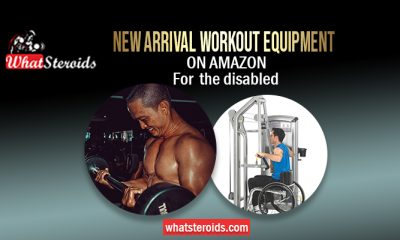
 Bodybuilding2 years ago
Bodybuilding2 years agoNew Arrival Workout Equipment on Amazon for The Disabled
-
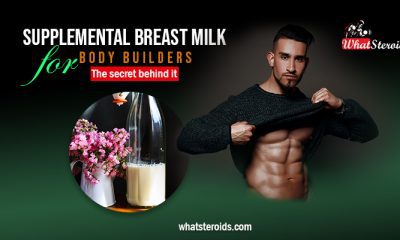
 Steroids2 years ago
Steroids2 years agoSupplemental Breast Milk for Bodybuilders: The Secret Behind It
-

 Steroids2 years ago
Steroids2 years agoDwarf Bodybuilders Giving Pros A Run for Their Money
-

 Steroids1 year ago
Steroids1 year agoVOX Testing: Why Bodybuilders Must Have It Tested Regularly
-

 Steroids1 year ago
Steroids1 year agoShavers and Other Body Grooming Equipment for Bodybuilders In 2023
-

 Steroids1 year ago
Steroids1 year agoChatGPT and Other Avenues to Find Great Bodybuilding Coaches
-
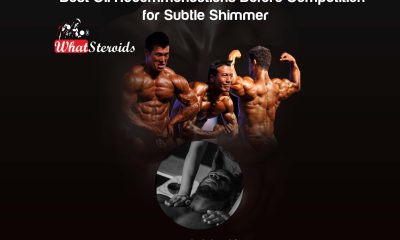
 Steroids1 year ago
Steroids1 year agoBest Oil Recommendations Before Competition for Subtle Shimmer
-
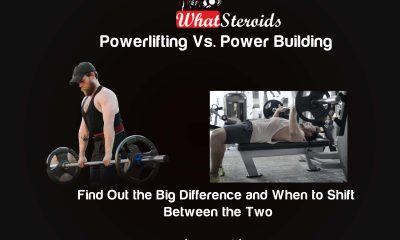
 Steroids1 year ago
Steroids1 year agoPowerlifting Vs Power Building: Find Out the Big Difference and When to Shift Between the Two
-
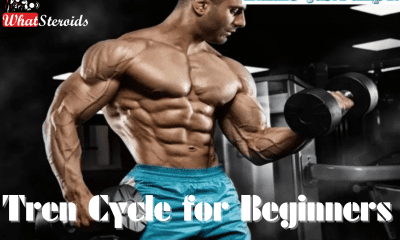
 Beginners12 months ago
Beginners12 months agoTren Cycle for Beginners
-
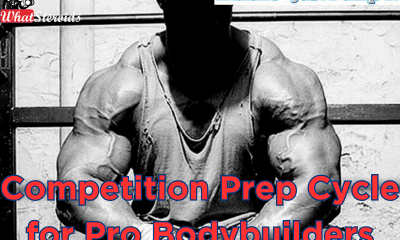
 Bodybuilding11 months ago
Bodybuilding11 months agoCompetition Prep Cycle for Pro Bodybuilders
-
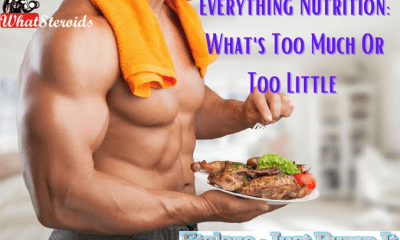
 Nutrition9 months ago
Nutrition9 months agoEverything Nutritional Food: What’s Too Much Or Too Little
-
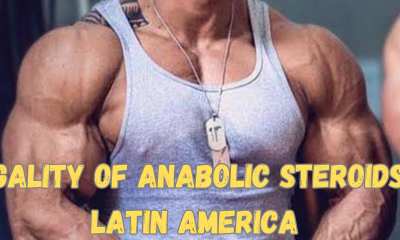
 Anabolic Steroids8 months ago
Anabolic Steroids8 months agoLegality of Anabolic Steroids In Latin America
-
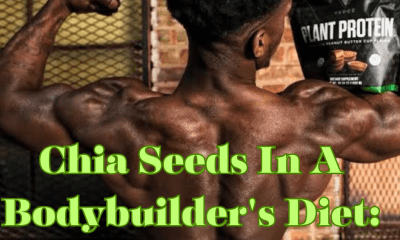
 Bodybuilding8 months ago
Bodybuilding8 months agoChia Seeds in A Bodybuilder’s Diet: An Expert’s Advice
-
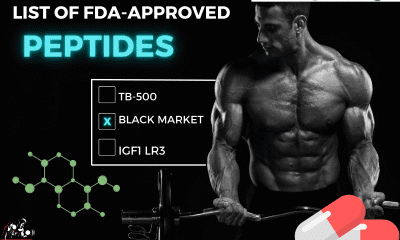
 Bodybuilding6 months ago
Bodybuilding6 months agoList of FDA-Approved Peptides
-

 Anabolic Steroids9 months ago
Anabolic Steroids9 months agoNatural Steroids for Bodybuilding
-

 Anabolic Steroids7 months ago
Anabolic Steroids7 months agoStart The New Year Strong With These Tips
-

 Beginners9 months ago
Beginners9 months agoCalisthenics: Secret to Building A Better Upper and Middle Body
-

 Bodybuilding7 months ago
Bodybuilding7 months agoUnique Things That Have Redefined Mr Olympia Over The Years
-

 Steroids5 months ago
Steroids5 months agoTrenbolone: Why it Remains A Beast In the Market
-
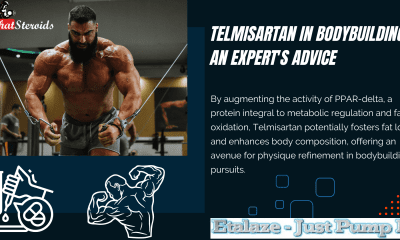
 Bodybuilding Products4 months ago
Bodybuilding Products4 months agoTelmisartan In Bodybuilding: An Expert’s Advice
-

 Bodybuilding5 months ago
Bodybuilding5 months agoThe Importance of Scaptions in Female Athletes
-
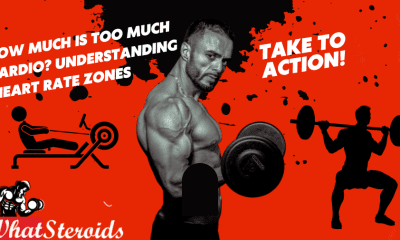
 Bodybuilding4 months ago
Bodybuilding4 months agoHow Much Is Too Much Cardio? Understanding Heart Rate Zones
-

 Bodybuilding6 months ago
Bodybuilding6 months agoFunny Gym Stories and Moments to Light Up Your Day
-

 Steroids8 months ago
Steroids8 months agoThese Bodybuilding Equipment Might Become Obsolete Next Year (See Alternative Upgrades)
-
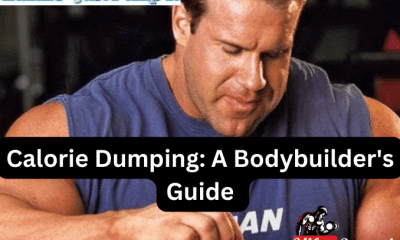
 Bodybuilding7 months ago
Bodybuilding7 months agoCalorie Dumping: A Bodybuilder’s Guide


